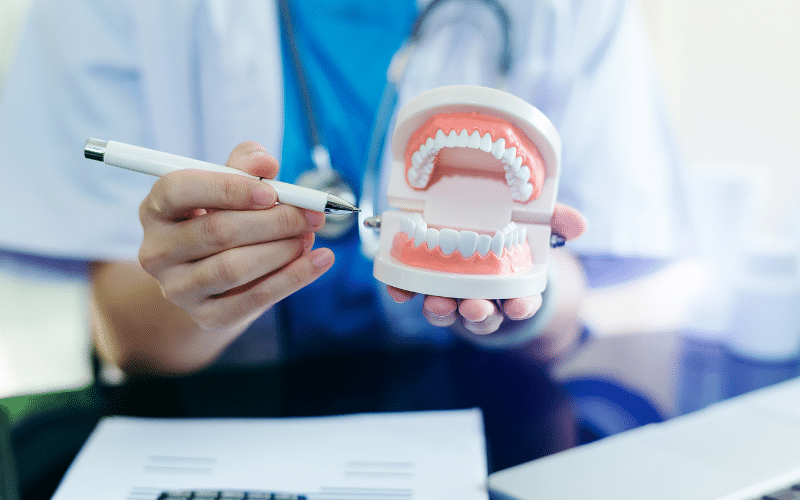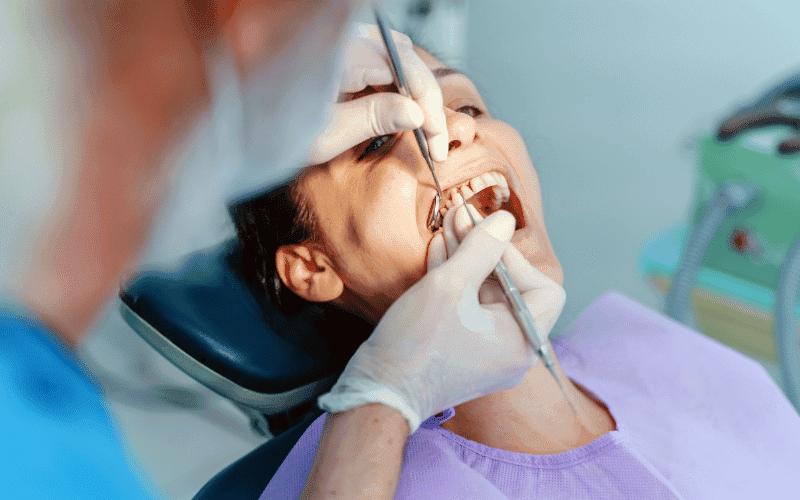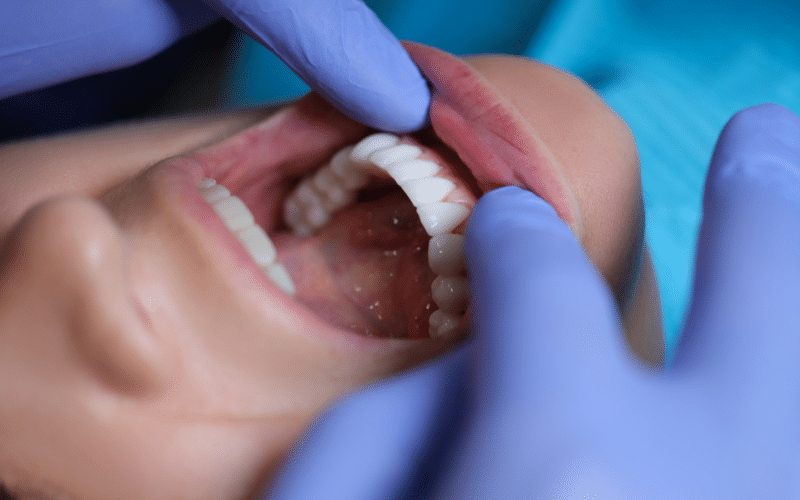ONLINE SCHEDULING AND VIRTUAL CONSULTS AVAILABLE

How to Care for Your Mouth After Oral Surgery?

Oral surgery is a significant procedure that requires careful attention and diligent care afterward to ensure proper healing and minimize complications. Whether it’s tooth extraction, wisdom teeth removal, or other surgical interventions, post-operative care plays a crucial role in the recovery process. In this blog, we’ll explore the essential steps and practices for caring for your mouth after oral surgery, empowering you to navigate through the recovery period with confidence and ease.
Understanding the importance of post-oral surgery care is paramount in ensuring optimal outcomes and a smooth recovery journey. From managing pain and swelling to maintaining proper oral hygiene and making necessary dietary adjustments, each aspect of post-operative care contributes to the healing process. By following these guidelines diligently and staying informed about best practices, you can promote efficient healing, reduce discomfort, and safeguard your oral health in the aftermath of oral surgery.
Understanding Oral Surgery
Oral surgery encompasses a range of procedures aimed at addressing various dental issues, from impacted wisdom teeth removal to more complex interventions like dental implants. Each type of oral surgery presents unique considerations for post-operative care, depending on factors such as the extent of the procedure and individual health conditions.
Common Types of Oral Surgeries:
- Tooth Extractions: Removal of damaged or problematic teeth, including wisdom teeth.
- Dental Implants: Surgical placement of artificial tooth roots for tooth replacement.
- Gum Surgery: Procedures to address gum disease or reshape gum tissue.
- Jaw Surgery: Corrective procedures to address misaligned jaws or skeletal issues.
- Oral Biopsies: Surgical removal of tissue for examination and diagnosis.
Factors Influencing Post-Surgery Care Needs:
- Complexity of the Procedure: More extensive surgeries may require longer recovery times and additional care measures.
- Overall Health: Underlying health conditions can impact healing and post-operative complications.
- Patient Compliance: Adhering to post-operative instructions and attending follow-up appointments is crucial for optimal outcomes.
Immediate Post-Surgery Care
After oral surgery, immediate post-operative care is crucial to promote healing and reduce discomfort. Here’s how to manage common concerns:
Managing Bleeding and Swelling:
- Apply gentle pressure: Use clean gauze to bite down on the surgical site to control bleeding.
- Use ice packs: Apply ice packs to the outside of the face to reduce swelling and discomfort.
- Avoid vigorous rinsing: Refrain from rinsing or spitting forcefully to prevent dislodging blood clots.
Guidance on Pain Management and Medication:
- Take prescribed medication: Follow your dentist’s instructions regarding pain relief medication to manage discomfort effectively.
- Use over-the-counter options: Non-prescription pain relievers like ibuprofen can also help alleviate pain and inflammation.
- Follow dosage instructions: Take medications as directed and avoid exceeding recommended dosages to prevent adverse effects.
Oral Hygiene Practices
Maintaining proper oral hygiene after oral surgery Plantation is vital for preventing infection and promoting healing. Here are some essential practices:
Proper Brushing and Flossing Techniques:
- Gentle brushing: Use a soft-bristled toothbrush to clean teeth gently, avoiding the surgical area.
- Floss carefully: Be cautious while flossing around the surgical site to prevent irritation or injury.
- Rinse with care: Use a saline solution or prescribed mouthwash to gently rinse your mouth after brushing.
Recommendations for Mouth Rinses and Oral Irrigators:
- Antimicrobial rinses: Your dentist may recommend an antimicrobial mouthwash to reduce bacteria and promote healing.
- Oral irrigators: When appropriate, use an oral irrigator with a low-pressure setting to cleanse the surgical area without causing discomfort.
Dietary Considerations
During the recovery period, consuming soft and easy-to-eat foods can aid in the healing process:
Soft and Easy-to-Eat Foods:
- Soups and broths: Nourishing and easy on the mouth.
- Yogurt and pudding: Smooth textures that don’t require much chewing.
- Mashed potatoes: Soft and comforting, providing essential nutrients.
- Smoothies and shakes: Blend fruits and vegetables for a nutritious treat.
- Scrambled eggs: Gentle on the teeth and rich in protein.
Foods and Drinks to Avoid:
- Crunchy or hard foods: Avoid nuts, chips, and hard candies that can irritate the surgical site.
- Spicy or acidic foods: These can cause discomfort or irritation.
- Carbonated beverages: Avoid sodas and sparkling drinks that may disrupt healing.
Activities and Lifestyle Changes
During the recovery period, certain activities and lifestyle changes are recommended to promote optimal healing:
Limitations on Physical Activities:
- Avoid strenuous exercises: Refrain from activities that may increase blood pressure or strain the surgical site.
- Rest and relaxation: Allow your body to recuperate by taking it easy and avoiding excessive physical exertion.
Smoking Cessation and Alcohol Consumption:
- Quit smoking: Smoking delays healing and increases the risk of complications. Consider cessation programs or aids.
- Limit alcohol intake: Alcohol can interfere with medications and impair healing. Minimize consumption during the recovery period.
Follow-Up Care and Recovery Timeline
Following oral surgery, diligent follow-up care and understanding the recovery timeline are essential for a successful outcome:
Importance of Follow-Up Appointments:
- Ensure proper healing: Regular check-ups allow the dentist to monitor progress and address any concerns promptly.
- Adjustments to treatment plan: If necessary, modifications to medication or instructions can be made based on recovery progress.
Recovery Timeline and Milestones:
- Initial recovery phase: Focus on managing discomfort and reducing swelling during the first few days.
- Gradual improvement: Over the following weeks, symptoms like pain and swelling should gradually diminish.
- Full recovery: Complete healing may take several weeks to months, depending on the type of surgery and individual factors. Follow the dentist’s guidance for a smooth recovery journey.
Proper care after oral surgery is crucial for a smooth recovery and optimal healing. By following the guidance provided by your dentist or oral surgeon, including post-operative instructions and attending follow-up appointments, you can minimize discomfort, reduce the risk of complications, and achieve the best possible outcome.
Remember to be patient with yourself during the recovery process and prioritize your oral health. With patience and diligence, you’ll soon be back to enjoying a healthy and comfortable smile.





